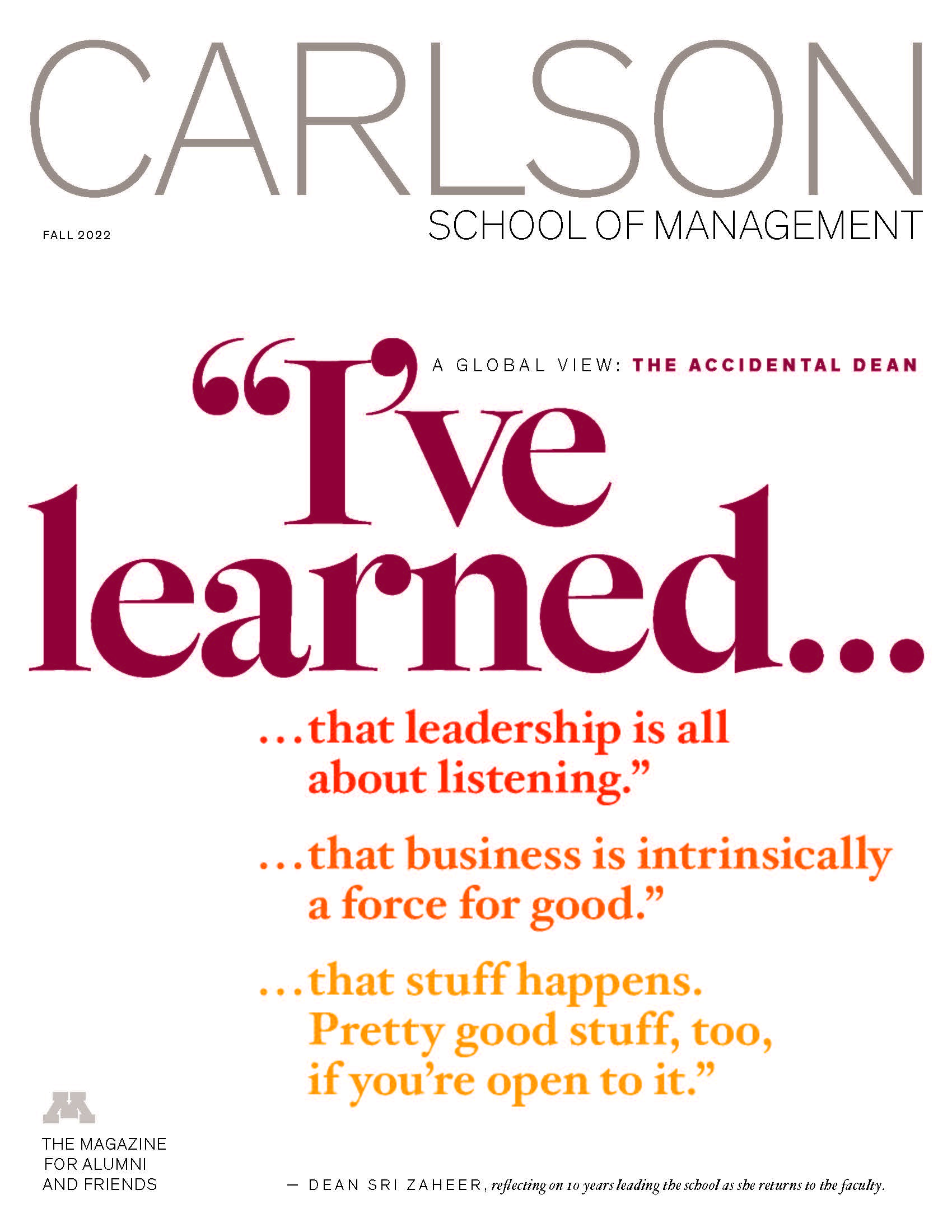
Under Inflationary Pressures: A Roundtable Discussion
Friday, October 14, 2022
BY KATIE DOHMAN
Companies and consumers are navigating the highest inflation in 40 years. Business leaders and experts break down the impacts and discuss the hidden costs.
No matter the industry, the income, the person: We’re all feeling the pinch of inflation. And the hot topic is: What is it? Why is everything so expensive but I’m not getting a raise? When will it stop? We turned to some experts to find out how inflation is affecting their industries and our wallets.
How does inflation affect each of your respective fields?
Mike Zechmeister: CH Robinson is in the transportation industry, as we broker the transactions of bringing people who need stuff shipped to people who do the shipping. There’s been massive inflation in transportation over the last year. It impacts us in every way: We book 50,000-plus loads a day, so it’s part of every conversation we have with customers. There’s been a massive escalation in cost of shipping, ocean and ground, from relative lows to all-time highs across seven consecutive quarters.
Robbi Thatcher: Right now, in pure numbers, the healthcare industry is not experiencing very much inflation. One reason for this is in healthcare many contracts are negotiated over multiple years. But our employees and consumers are feeling the effects every single day. Costs can be a reason why people don’t go to the doctor or fill lifesaving medicines. Then they end up in the Emergency Room, which raises the cost of care. Healthcare plays into basic necessities, similar to food, but people have to make tradeoffs, because there’s only so much money in their bank account and the impacts are longterm—they’re not just switching from name-brand to generic ice cream. Plus, our providers are already burnt out by COVID.
Zechmeister: And, our wage escalation is greater than at any time in recent history. We had to raise our numbers twice to keep up with what was going on in the market. Paying our people more is part of what we have to do. Costs go up. If our costs are going up, our prices are going up. The issue with inflation is like a Yogi Berra quote: inflation causes inflation. When wages escalate, most likely, prices are going up to pay for that, and people need to make more money to buy things.
Akshay Rao: [Research tells us] everybody experiences inflation, at the abstract level, in the same manner. If you have children or buy stuff for other people, when things are getting more expensive a consequence [is someone is] going to get shortchanged one way or another. [Maybe it’s] less ice cream at dinner or [something more impactful of your] big picture.
The issue with inflation is like a Yogi Berra quote: inflation causes inflation.
What might you say are the “hidden costs” of inflation that consumers may not realize?
Thatcher: Nine out of 10 consumers are somewhat or very concerned about inflation. Find me another statistic in the U.S. where you can get nine of 10 people to agree on. When you look at something like that, the broader factor becomes how people are feeling, and why we care about that is because feelings drive behavior. Consumers are getting ready to make tradeoffs, make changes in buying behaviors. That’s not just one area of their lives.
Zechmeister: Note the difference between essential and discretionary spending. For instance, food was fine at Walmart. But everything that wasn’t essential really got hurt. Try to fund your sports leagues or camps when you’re living paycheck-to-paycheck and had to cut out expenses in your life. We’re talking about development of kids, enriching in their lives. That has longterm implications. I worry about that.
Thatcher: We know inflation is impacting every consumer, the overarching burden of which consumers are hurting more than others is not evenly spread. Just like the impact of the pandemic, this impacts people of color and women more, and they’re already behind. I’m concerned about the widening gap as we strive for equity.
I’m concerned about the widening gap as we strive for equity.
When it comes to inflation, the changes in gas prices are often the most visible to consumers. How does that one measure affect the issue overall?
Rao: For all the complaining about inflation that we’re hearing, especially around gas prices, I guarantee you they won’t be mirrored by celebrations about decreasing gas prices. There’s a great theory about this called loss aversion, which says that losses hurt more than gains. So, people will notice reductions in prices less and celebrate that less.
People don’t buy gas because they like the smell of gas or window shop for gas—it’s a product you need to get from A to B. Right now, it costs 16 cents to travel a mile; in 1980, it was 32 cents. We’re much better off than we were before, but the two pieces of info consumers look at is brand name and the price.
Zechmeister: Our second biggest [office] is in Chicago. We went to 100 percent remote [during the pandemic] like most companies did. Now we’re coming around to other side, we’re finding the workforce has new concerns around commut[ing] or paying for gas. But there’s a long-term implication to people not being together. The depth of relationship, commitment to culture and company, decision making, and [risk that the] workforce will be less connected, committed, and developed.
When can we expect inflationary pressures to subside across the board?
Rao: When is this going to end? All of these factors, the Ukraine war, COVID19, etc. are shocks to system. But when shocks decline or are factored into the price, we should see a diminution in prices which has already started in some areas.
If anyone is willing to check the crystal ball and share, then they’d be on track for a Nobel Prize!



